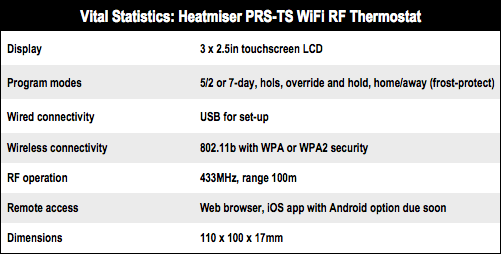This article is more than 1 year old
Heatmiser PRT-TS Wi-Fi RF thermostat
Hot property
Review With fuel bills ever rising, keeping an eye on your heating makes good sense, and Heatmiser’s Wi-Fi thermostat is intended to help you do just that. It’s based around a large, 3 x 2.5in touchscreen, which controls a timer/thermostat with its wireless features enabling configuration from an iOS device.
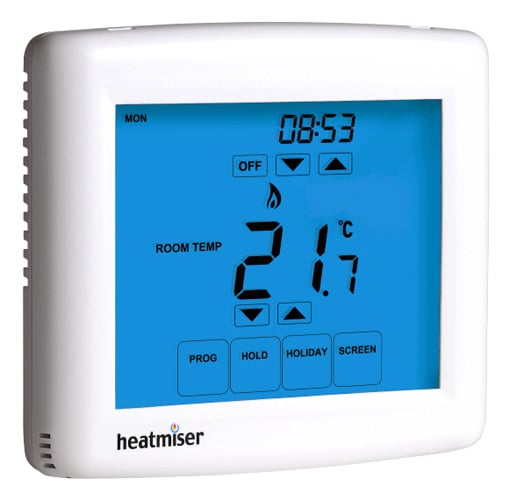
Heatmiser's PRT-TS: touchscreen tweaks or remote access from a browser
The device can work in either five plus two or seven day modes, with four periods for each day, labelled ‘wake’,’leave’,’return’ and ‘sleep’. So far, not so different from most other programmable thermostats.
Yet having a built-in web server also allows you to change the settings remotely from any browser, and a second port which listens for a command protocol, which is supported by an iPhone app, with an Android one coming soon.
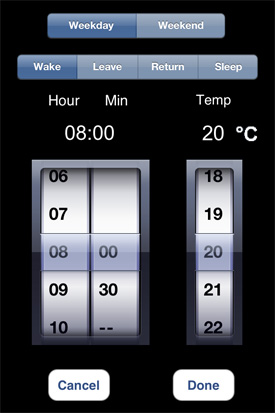
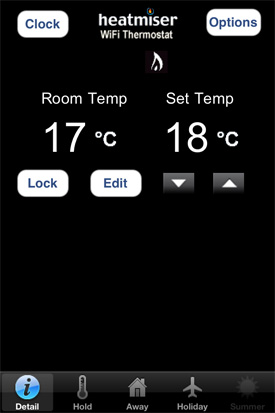
The iPhone app makes it easy to turn heating on when you leave the office and alter settings
The model I tested is the RF version, which requires just a mains power supply, so can replace a thermostat that’s connected by only two wires, without needing to pull new cable. The actual switching is handled by a remote RF switch, which can be sited next to the boiler.
If do you have a three wire connection to your existing thermostat, then the standard model is £50 cheaper. Either way, installation is a simple DIY job, though the size of the thermostat means it needs to be mounted on a standard inset wall box, rather than a surface one, which it would overhang.
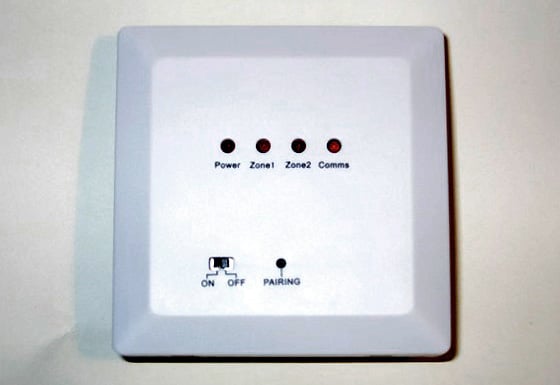
The RF version uses a remote switch, so a standard two-wire thermostat connection can power the thermostat
Before that, though, you have to configure the thermostat from your PC. It needs a fixed IP address so you can access it remotely, and an app for both Windows and Mac makes it easy to configure. Linux users should have no trouble either, as when it’s plugged in using USB, the thermostat appears as a drive, with a ‘config.txt’ file that is what the setup tool modifies, so you can do it yourself in vi.
